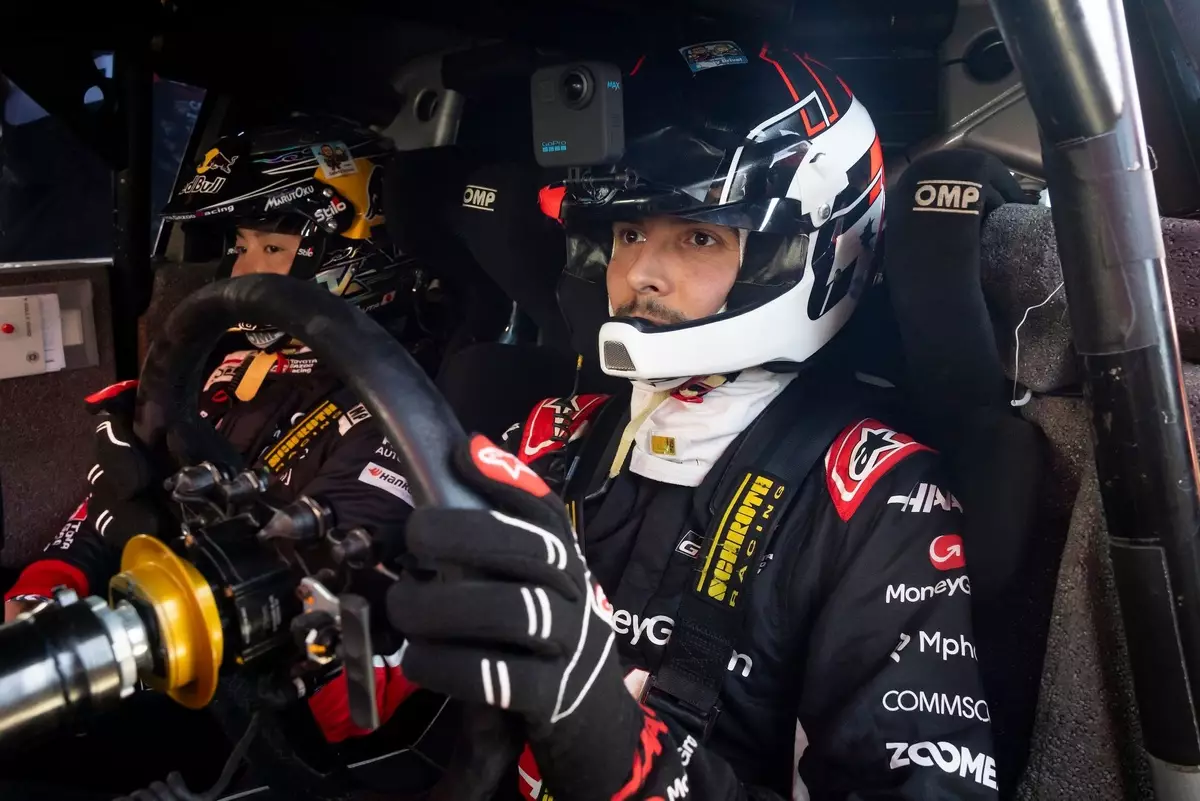In the fast-paced universe of motorsport, where racing categories often operate within their exclusive bubbles, moments of crossover and genuine passion are rare and precious. Esteban Ocon’s recent experience at the Goodwood Festival of Speed exemplifies how motorsport legends and aspiring drivers alike can find inspiration beyond their usual disciplines. His surprise opportunity to drive a World Rally Championship (WRC) car isn’t just a fleeting thrill; it ignites a deeper conversation about the passions that fuel racers and the potential for broader boundaries within motor sport.
This event reflects a significant milestone not only in Ocon’s personal journey but also in the evolving dialogue between racing disciplines. It highlights that true racing talent and passion aren’t confined to single tracks or categories; they’re driven by an innate love for driving and the relentless desire to explore new frontiers. What made Ocon’s experience remarkable wasn’t solely the act of driving a Rally1 car — it was the palpable affirmation that dreams, when genuine and nurtured, can come true even in the most unexpected ways, fostering a culture of openness and mutual respect across racing communities.
The Power of Corporate and Personal Relationships in Motorsport Culture
The role of Toyota’s involvement in Ocon’s rally experience reveals a deeper layer of cooperation that often goes unnoticed in motorsport narratives. Here is a prime example of how corporate and personal relationships can facilitate extraordinary opportunities. The partnership between Haas F1 Team and Toyota isn’t just about technical collaboration; it’s about shared passions, trust, and the willingness to foster growth beyond mere engineering.
Toyota, motivated perhaps by the desire to inspire future talent or to deepen engagement with fans, arranged for Ocon to test a rally car—a gesture that transcended typical sponsor interactions. It underscores how motorsport isn’t only about competition but also about community and mentorship. Akio Toyoda’s personal intention to challenge Ocon with a WRC vehicle symbolizes a broader recognition that involvement in motorsport can be a life-changing experience, shaping perceptions and inspiring the next generation of drivers to aspire beyond boundaries.
This public display of camaraderie elevates how brands and teams can leverage their influence to foster part of the sport’s soul: shared excitement, exploration, and dreams realized through authentic connections. It’s this spirit that transforms a simple test drive into a defining moment, elevating motorsport culture as a whole.
Rally Cars as Engineering Marvels and Emotional Catalysts
Ocon’s detailed reflections on a Rally1 car offer invaluable insight into the fascinating engineering marvels that power this segment of racing. Unlike Formula 1, which emphasizes aerodynamics and pure speed on asphalt, rally cars are versatile, rugged, and ingeniously engineered for off-road challenges and rapid adaptation. His observations about the car’s handling, from the intuitive handbrake to the short throttle response, demonstrate how Rally1 vehicles are meticulously crafted to deliver maximum driver engagement and control.
It’s easy to dismiss rally cars as just another form of motorsport equipment, but Ocon’s admiration reveals a deeper appreciation: these cars are engineering feats that mirror the spirit of adventure and resilience. Their prototype-like features, lightweight construction, and creative use of technology evoke a sense of raw, unfiltered performance that can stir even the most seasoned drivers. His enthusiasm about the smooth steering, ease of handling, and the exhilaration of off-road jumps showcase how these machines are not only tools of competition but also embodiments of innovation born from necessity.
More than that, the emotional resonance of the experience hits home. For a driver like Ocon, who spends his career pushing limits on a circuit, discovering how well-engineered and visceral rally cars are can be transformative. It’s a reminder that motorsport is about exploration, joy, and connecting with the pure thrill of driving — elements that transcend categories and unify competitors through shared passion.
The Future of Motorsport Crossovers and Personal Aspirations
Ocon’s remarks about potentially engaging in rallying after his Formula 1 career serve as a provocative invitation to reimagine what athletes and fans expect from racing. His candid expression of interest underscores a broader truth: athletes are multifaceted, and their passions often reach beyond the constraints of their current discipline. The idea of trying rallying “for fun” speaks volume about the openness within the racing community to pursue personal growth and exploration.
Furthermore, Ocon’s revelation that rally cars can be road-legal and accessible hints at a future where cross-category participation becomes more common or, at least, more socially accepted. There’s an underlying message that such experiences are not only desirable but essential for continuous innovation and inspiration in motorsport. The blending realities of professional competition and personal hobbyism could foster a more inclusive and dynamic environment, where drivers are encouraged to diversify their skills and develop a richer understanding of vehicle dynamics.
Most compellingly, this crossover underscores a bigger picture: racing isn’t merely about trophies and records. It’s a lifelong pursuit driven by curiosity, joy, and a relentless desire to push personal boundaries. Ocon’s experience acts as a microcosm of this philosophy, advocating that the true spirit of motorsport lies in exploration, discovery, and the pursuit of dreams—no matter how unconventional they may seem at first glance.


Leave a Reply